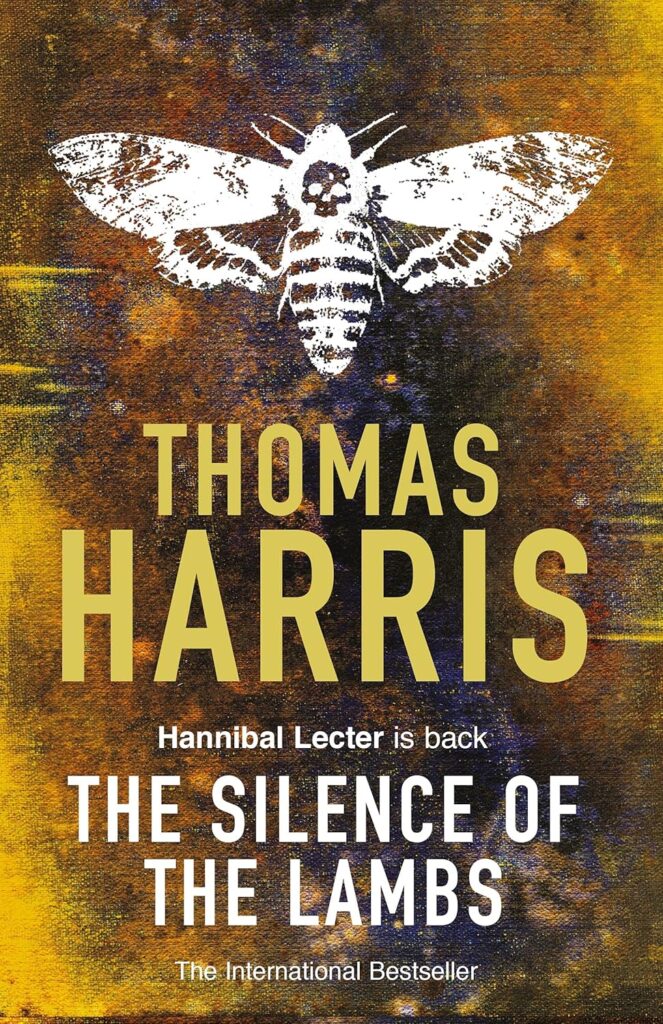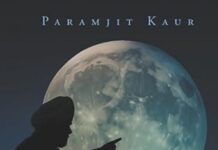Some books will thrill you, and some books will absolutely traumatize you. Here is a list of books that will surely make you go to therapy after you finish reading.

Some books shake you so much that you avoid them at night, because the feeling stays long after the chapter ends. Others pull you far from your own world and show you places you never expected to see. Some feel close to home, almost like they are holding up a mirror. Then there are the ones that move in a slower, darker way. A secret sits at the center of the story, and you follow the characters as they try to make sense of things they cannot quite see. Their lives twist because of someone else’s choices or because something buried finally begins to surface. These are the books that stay with you. You put them down for a moment, thinking you are done, but the story settles in your mind and refuses to leave.
So, if you are in search of the books that will absolutely shake your core and kind of put you in a trauma that only therapy can pull you out of, you are in the right place. Here is a list of 15 books that will absolutely traumatize you. Keep reading…
Why do readers love disturbing fiction so much?
Readers often step into emotional turmoil because these stories offer a safe place to face fear. A disturbing plot opens a door to the parts of life people often try to ignore, and it lets them look at violence, obsession, manipulation, sadness, and guilt without being harmed by any of it. The pull comes from the way these stories uncover truths that sit deep in the human mind. They let you sit with thoughts you usually push away, and you come out of it feeling much lighter in a strange way. It feels like a release that arrives after sitting with chaos for a while. The story takes you through darkness, but the act of facing it gives a kind of calm that stays long after the last page.
What is the criterion for choosing this list?
Not every horror or psychological thriller book unsettles you. The ones on this list, however, stay with you because they move past shock and dig into the mind. They carry a kind of moral tension that grows as you read, and the emotions hit long after the story ends. These books create a feeling that follows you into your day, almost like a dream that blurred into real life. They are chosen for the way they get under your skin and sit there in a quiet and lasting way.
The most disturbing books you will ever read
The Shining Girls by Lauren Beukes
If the Apple adaptation of The Shining Girls did not land for you, it is still worth picking up the novel, especially if you want a story that gets under your skin in a way that feels almost too real. The book moves with a slow, unsettling rhythm that pulls you into its world, and the publisher’s synopsis captures the strange grip it has. In Depression-era Chicago, Harper Curtis discovers a key that unlocks a house tied to different points in time, and with that power comes a dark need to hunt the shining girls, who were women full of promise. He slips through decades, following them from one era to the next, until one survivor in 1989 refuses to stay a victim. Kirby Mazrachi begins to track him in return, working with a former reporter who sees her strength long before she sees it in herself, and the two push against a mystery that bends every rule they know.
What makes this book so heavy is not the violence alone, though the brutality is constant, and some scenes feel almost impossible to read. The story resonates more deeply because it circles a truth that many women intuit without needing to articulate it. Across time and place, the threat of harm follows women in ways that feel relentless. The novel captures this feeling with a clarity that leaves a mark on you. You read it with a growing sense that the danger in the story reaches far beyond its pages, and that is what lingers when the book closes. It is the reminder that the cycle has never truly stopped.
The Silence of the Lambs by Thomas Harris
Every lover of psychological suspense reaches a point when The Silence of the Lambs becomes unavoidable. Returning to it after the first read feels even richer because the tension grows stronger when you already know the darkness waiting in the next chapter. The story follows an FBI trainee, Clarice Starling, as she steps into a case that has already shaken the Bureau. It is a hunt for Buffalo Bill, a killer who moves through the country with a pattern that feels as eerie as it is cruel. To move closer to the truth, she sits across from Dr. Hannibal Lecter. He is a brilliant psychologist who now lives behind the walls of a Maryland institution, serving life crimes that sit far beyond ordinary violence.
The exchanges between them shape the pulse of the book. Their conversations carry a weight that pushes you deeper into the psychological layers beneath the plot. Lecter offers help in pieces, always controlled, always watching her reactions. Clarice learns how to hold her grown-up without letting him move too far into her mind. The clues he gives start to form a path that grows stranger with each step. The danger builds with every step as Clarice begins to understand how Buffalo Bill thinks, what he wants, and why, and how he chooses his victims. The tension sits close as the story moves toward its final stretch. This feeling stays long after the last page as the book knows exactly how to explore fear through characters and the unsettling quiet of a human mind.
Sin by Josephine Hart
This short literary classic draws you in with the same force as a full-scale commercial thriller, but it carries a deeper and more unsettling edge. The story turns its gaze toward obsession, resentment, and the quiet ways a person can unravel when jealousy becomes the center of their world. At the heart of the novel is Ruth. She is a woman who lives in the shadow of her flawless half-sister Elizabeth. Her envy grows in slow, sharp layers, and the book follows the way that envy shifts into something darker as Ruth makes it her mission to dismantle Elizabeth’s life piece by piece.
Josephine Hart writes with a precision that feels almost surgical, blending the lyricism of a poet with the tension of a storyteller who understands how to uncover the most fragile parts of a character’s mind. The language moves with a subtle intensity, and each chapter pulls you further into the emotional terrain that Ruth refuses to escape. You watch her navigate the world with a bitterness that feels both intimate and unsettling, and the harm she causes lands with a weight that lingers long after you look up from the page.
Sin is the kind of book you return to because its impact deepens with each reading. It pushes you to sit with the uncomfortable truth that the most destructive impulses often come from feelings that seem small at first, and that is what makes the story so haunting.
The Talented Mr. Ripley by Patricia Highsmith
Tom Ripley remains one of the most unsettling characters in modern fiction. Even though the film adaptation with Matt Damon captured his charm and menace, the novel offers something far more intimate. Patricia Highsmith writes with a quiet tension that pulls you into Tom’s world in a way no screen version can. Her prose feels lean yet heavy, and it creates a space where you start to notice every small slight that shapes Tom’s view of himself.
You move through the early scenes with a growing awareness of how deeply Tom feels each humiliation, each reminder that he does not belong in the world of wealth and privilege he admires from the outside. Highsmith draws out these moments until you begin to understand the desperation behind Tom’s choices. This understanding becomes part of the book’s power. You see the glossy and perfect lives around him, and you recognize the gap he aches to close. This is present even when his actions start drifting into something far more sinister.
When Tom finally steps into violence, the shift is chilling, yet the storytelling makes you feel the danger from inside his perspective. You fear for the people around him, but you also feel the tension of watching him try to outpace the consequences he has set into motion. The book creates a strange loyalty, a discomforting pull that keeps you close to him as he slips deeper into deception.
By the time the tension peaks in the story, you are caught between horror and a strange sense of sympathy for Tom. This complicated space is exactly what makes this novel so enduring. It lingers because it refuses to give you a simple villain. It offers a character you understand more than you want to, and that is what stays with you long after the final page.
The Ghost Road and the Regeneration Trilogy by Pat Barker
Pat Barker’s Regeneration trilogy remains one of the most haunting explorations of war and its unseen wounds, and the books follow British officers who return from the First World War carrying the weight of trauma that has altered their minds as much as their bodies. The final volume, The Ghost Road, earned the Booker Prize in 1995, and the recognition feels well deserved because the trilogy captures the slow, grinding devastation of warfare with a clarity that still unsettles readers.
You move through the story alongside men who are shattered by shell shock, and the novels show how the medical system of the time tried to piece them back together, only to send them straight to the front again. The accounts of treatment are chilling because they reveal a system built on policy rather than compassion, and you are confronted with the harsh truth that many soldiers were pushed into battle long before they were ready, if they ever could be.
The books also touch on the inner lives of these men, many of whom were sensitive and emotionally complex. This includes several well-known war poets. Their struggles with identity and masculinity deepen the sense of unease as the narrative moves between hospitals, trenches, and the political machinery that shaped the war. Even the early English covers of Regeneration and The Eye in the Door carry an eerie quality that mirrors the emotional terrain of the stories.
Prophet Song by Paul Lynch
Paul Lynch’s Prophet Song was shortlisted for the Booker Prize in 2023, and for all the right reasons. The book builds a world that feels close enough to unsettle you slowly and steadily. The novel follows a mother who is pushed into a situation that grows more urgent with every chapter, and the tension rises as her country begins to slide toward a hard and unforgiving system of control. You watch her move through a life that once felt familiar, and the shift from normalcy to fear creates a pressure that never eases. The book works because the danger is not absurd. It is rooted in changes that arrive quietly at first and then spread through homes, schools, private, and public spaces until nothing feels safe.
Readers often say Prophet Song is one of the most disturbing books they have read, not because of gore but because its world feels possible. You see a family shift from suburban calm to a life shaped by a regime that takes more each day, and the slow loss of freedom lands with a kind of force that stays with you. The fear builds as doors close, rules tighten, and people disappear without warning. The emotional pull comes from the way you begin to understand how fragile a stable life can be, and how quickly that stability can slip away.
There are moments in the story that make you stop and breathe before you turn the next page. One scene even makes many readers gasp because the connection to the characters has grown so strong. Prophet Song does not leave your mind easily. It lingers because it shows a reality that could touch any family. This sense of closeness is what makes the novel so haunting long after the final chapter.
Sharp Objects by Gillian Flynn
Gillian Flynn’s writing has a sharp and witty edge that gives psychological thrillers a tone many readers fall into quickly, and her debut novel, Sharp Objects, carries a darker and more unsettling pulse than her later work. It may not have the fireworks of Gone Girl or the heavy bleakness of Dark Places, but it stands out because the characters feel layered in a way that pulls you in slowly. You follow people who are charming on the surface yet cracked underneath, and the tension grows as each layer of their lives comes into view.
At the center of the story is Camille Preaker, a reporter whose inner world feels as fragile as it does fierce. She carries a private ritual that marks her worst moments, carving words into her own skin, and this detail alone sets the tone for the emotional terrain the book moves through. Camille is sent back to her hometown of Wind Gap to cover the murders of two young girls, both found strangled and missing their teeth, and the assignment forces her into a place she once escaped. The return home brings back memories she would rather forget, and the town itself becomes a character with its own secrets and pressures. You watch Camille try to balance her job with the old ghosts she left behind. Then the story gathers a heavy tension as she begins to see how deep the darkness runs. Sharp Objects stays with you because it blends crime with trauma and family in a way that feels intimate, even when the scenes turn unsettling. It is a book that draws you into its shadows and makes you sit with them longer than you expect.
Baby Teeth by Zoje Stage
Zoje Stage’s psychological thriller Baby Teeth digs into the tension of a family that looks ordinary from the outside but hides a darkness that grows stronger with every chapter. The story centers on a mother and daughter whose relationship carries a sharp and unsettling edge, and you feel that strain from the moment their lives come into focus. Hanna is seven years old, quiet and sweet in the way that makes most adults lean in with affection. Yet there is something in her silence that unsettles you long before the truth begins to show.
Her mother, Suzette, lives with the constant fear that Hanna is not simply difficult but dangerous. The book follows her attempts to understand a child who seems determined to undermine her at every turn. Suzette feels the weight of each strange moment, each small act that hints at something colder beneath Hanna’s surface, and you begin to sense how isolating that fear becomes when no one else sees what she sees. Alex, the father, remains convinced that Hanna is simply misunderstood, offering comfort and patience while Suzette carries the burden of suspicion alone. His affection for Hanna blinds him to the darker patterns forming inside their home, and the gap between his view and Suzette’s experience creates a tension that spreads through the entire story.
Baby Teeth pushes you into shifting loyalties as you question what is real, who is right, and how far a parent can be pushed before something breaks. The novel keeps you on edge because it captures the way love, fear, and doubt twist a family from the inside. By the final page, you understand how fragile trust can be when danger hides behind a child’s smile.
The Whisper Man by Alex North
Alex North’s novel settles into your mind with a mix of unease and curiosity, the kind that grows as each chapter reveals something darker beneath the surface. The story follows Tom Kennedy, a widower trying to rebuild life with his young son Jake after a stretch of grief that has left them both raw and unsteady. They move to Featherbank, a quiet English village that seems like a fresh start, yet the place carries a past that never truly faded.
Two decades earlier, the community lived through a string of murders committed by a man who became known as the Whisper Man. His method was chilling in its simplicity. He lured children from their bedrooms by whispering to them through their windows at night. The terror left deep marks on the village long after his arrest. Featherbank has tried to move on, but the shadows of that time remain. When a local boy suddenly disappears, the old fear rushes back, and rumors begin to spread that the Whisper Man’s presence has returned.
The police scramble to uncover the truth, and two detectives take on a case that feels connected to the past, even before the evidence emerges. As the investigation unfolds, Tom and Jake find themselves drawn into the heart of the mystery. Strange events at home started happening, along with the unsettling feeling that someone may be watching them, started to haunt them. The novel builds the chilling atmosphere with care, weaving fear and grief. The bond between father and son grows into a story that tightens slowly around you. As you reach the final stretch, the sense of dread feels almost personal, as if the whispers could reach your own window too.
The Butcher Boy by Patrick McCabe
Patrick McCabe’s novel, shortlisted for the Booker Prize in 1992, pulls you into a world that feels both intimate and deeply unsettling. The story traces the unraveling of a young killer in 1960s small-town Ireland, and the narration comes entirely through his stream of consciousness. This choice places you inside a shifting and unstable mind, creating a reading experience that feels claustrophobic in the most powerful way. You move through moments that seem almost ordinary before they tilt suddenly into something darker, and the effect builds slowly until you realize how far the narrator has slipped from reality.
Readers often describe this book as terrifying, not because of the violence alone but because of the emotional descent at its core. You witness a child shaped by neglect and abuse. Another element of the book is the tragedy that lies in the way his world narrows until he can no longer separate fear and fantasy from truth. The horror grows from the sense that you are watching someone fall apart in real time, and there is nothing you can do to pull him back. One reader put it plainly by saying the most frightening place to be was inside the Butcher Boy’s mind. That is where the novel keeps you, forcing you to sit with a viewpoint that is both heartbreaking and chaotic. Part of the dread comes from knowing how completely he is consumed by mental illness, and from the helplessness that surrounds his final acts. This book stays with you for a long time, as it shows a darkness that grows quietly inside a child long before anyone notices. By the end, the weight of that realization stays with you.
The Silent Patient by Alex Michaelides
Alex Michaelides’s debut arrives with a sharp, magnetic pull, the kind that makes you settle in for a psychological thriller that refuses to loosen its grip. The story follows Theo Faber, a criminal psychotherapist whose interest in a brutal murder grows into something far more personal. You meet him at the moment he decides to uncover the truth behind a crime that has already shaken London’s art world. The killer is not a mystery. Alicia Berenson, a celebrated painter, shot her husband in their elegant home and then fell completely silent. She has not spoken since the night it happened, turning the case into a puzzle that draws curiosity from everyone who hears it.
Theo steps into her world with the belief that he can reach her when no one else has managed to break through. His sessions with Alicia create a charged tension that builds through each chapter, and you start to feel how much he wants to understand the silence she has wrapped around herself. As he digs deeper, the edges of the story begin to shift, and the line between patient and therapist starts to blur. You watch him push past every warning, convinced that unlocking Alicia’s mind will reveal something essential. The novel gains momentum as Theo’s obsession grows, leading him into corners of his own life that he has avoided for years. The further he goes, the more you sense that the answers he wants may cost him far more than he expects. This is a thriller that pulls you into its shadows, nudging you to question motives and truths until the final reveal snaps everything into place.
The Maidens by Alex Michaelides
Alex Michaelides steps back into the shadows of the mind with a story that blends campus intrigue, Greek mythology, and the quiet unease that follows you long after the page turns. The book drops you into Cambridge University at a moment when everything feels slightly off. A student is found murdered, and the shock ripples through the elite academic world surrounding her. She belonged to The Maidens, a secretive circle of young women devoted almost obsessively to Edward Fosca, the magnetic professor who teaches Greek tragedy and seems untouchable to everyone around him. You watch Mariana Andros move through this world with a kind of haunted certainty. She’s a therapist carrying her own wounds and a former Cambridge student who can see things others choose to ignore. Her instincts pull her toward Fosca, even when every step she takes threatens her stability. As she digs deeper into the strange rituals and hidden loyalties on campus, the line between truth and obsession blurs, and you start to question how far anyone should go in the name of uncovering a secret that refuses to stay buried.
The Death of Us by Abigail Dean
Abigail Dean returns with a story that pulls you in quietly before tightening its grip, and The Death of Us stands out as one of those thrillers that leaves you uneasy in the best way. The book begins in a small village that feels peaceful on the surface, the kind of place where everyone seems to know one another, yet something dark has been sitting under that calm for far too long. Everything shifts after a tragic accident, and you start to feel how much weight a single moment can place on a community already stretched thin by old secrets.
Dean does not rush the unraveling. She moves through the lives of families who have been holding on to versions of the truth that never quite matched the reality they were living in. You watch how guilt builds over time. You also witness how people learn to live with lies they once told to feel safe and how those lies end up shaping the very relationships they tried to protect. The atmosphere grows heavier with each chapter, not in a loud or dramatic way. But in a slow and creeping tension that settles over you.
So, which one are you picking up?


















